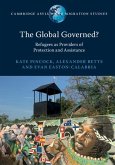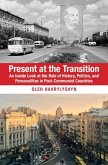The right of self-determination of peoples holds out the promise of sovereign statehood for all peoples and a domination-free international order. But it also harbors the danger of state fragmentation that can threaten international stability if claims of self-determination lead to secessions. Covering both the late eighteenth- and early nineteenth-century independence movements in the Americas and the twentieth-century decolonization worldwide, this book examines the conceptual and political history of the right of self-determination of peoples. It addresses the political contexts in which the right and concept were formulated and the practices developed to restrain its potentially anarchic character, its inception in anti-colonialism, nationalism, and the labor movement, its instrumentalization at the end of the First World War in a formidable duel that Wilson lost to Lenin, its abuse by Hitler, the path after the Second World War to its recognition as a human right in 1966, and its continuing impact after decolonization.
Dieser Download kann aus rechtlichen Gründen nur mit Rechnungsadresse in A, B, BG, CY, CZ, D, DK, EW, E, FIN, F, GR, HR, H, IRL, I, LT, L, LR, M, NL, PL, P, R, S, SLO, SK ausgeliefert werden.









